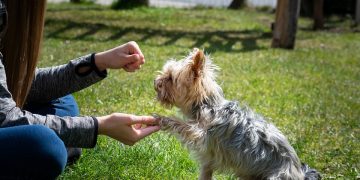Dog Behavior Change After Vaccination: What Every Pet Owner Should Know
Vaccinations are a cornerstone of responsible pet care, safeguarding dogs from serious and sometimes life-threatening diseases. While the health benefits are undeniable, it’s not uncommon for pet owners to notice subtle shifts in their dog’s behavior after receiving shots. This article will delve into the possible reasons behind these changes, with a particular focus on dog behavior changes after rabies vaccination, and what you can do to ensure your pup’s comfort and well-being.
Understanding Behavior Changes Post-Vaccination
The immune system plays a central role in how vaccines work. When your dog receives a vaccination, the immune system is prompted to create antibodies to fight off specific pathogens. This process, while protective, can temporarily affect your dog’s energy levels, mood, and overall behavior.
Common Behavioral Changes After Vaccination
- Lethargy and Fatigue: It’s typical for dogs to feel a bit under the weather for a day or two post-vaccination. Their body is working hard to build immunity, which can lead to decreased energy levels.
- Soreness and Discomfort: The injection site may be tender, causing your dog to avoid being touched or exhibiting signs of mild irritability.
- Temporary Loss of Appetite: Some dogs might eat less than usual immediately after receiving a vaccine.
Rabies Vaccine and Behavioral Shifts
The rabies vaccine is essential and legally required in many areas, but some pet owners report noticing changes in their dog’s behavior post-vaccination. While side effects like mild lethargy or soreness are common, you might also observe your dog being unusually quiet, reserved, or even slightly irritable. These reactions typically subside within 24 to 48 hours.
In rare cases, more significant behavioral shifts could occur, such as heightened anxiety or sensitivity. If you notice prolonged or concerning changes in your dog’s behavior after a rabies shot, consult your veterinarian to rule out any adverse reactions.
Puppy Behavior Changes After Vaccination
Puppies, with their developing immune systems, can sometimes exhibit more noticeable behavior changes after vaccinations. They may appear unusually tired, whine more frequently, or show slight discomfort. These reactions are generally short-lived and a normal part of the immune response. Providing a cozy, quiet space for rest can help your puppy recover quickly.
When to Seek Veterinary Attention
Most post-vaccination behavior changes are mild and resolve quickly. However, you should contact your veterinarian if you notice any of the following:
- Persistent lethargy beyond 48 hours
- Severe swelling, redness, or warmth at the injection site
- Vomiting or diarrhea
- Difficulty breathing or signs of an allergic reaction
How to Support Your Dog After Vaccination
- Provide Comfort: Ensure your dog has a calm and quiet place to rest. Avoid over-stimulating activities for a day or two.
- Monitor for Side Effects: Keep an eye on your dog’s behavior and physical condition. Mild side effects like fatigue are normal, but stay alert for any unusual symptoms.
- Hydration and Nutrition: Encourage your dog to drink water and eat, even if their appetite is slightly reduced.
Conclusion
Dog behavior changes after vaccination are typically minor and temporary, a small trade-off for the critical protection vaccines provide. Understanding what to expect, particularly after essential shots like the rabies vaccine, can help you better care for your furry companion. If you have any concerns about your dog’s behavior or vaccination schedule, don’t hesitate to reach out to your veterinarian. Together, you can ensure your dog remains healthy, happy, and protected for years to come.













































